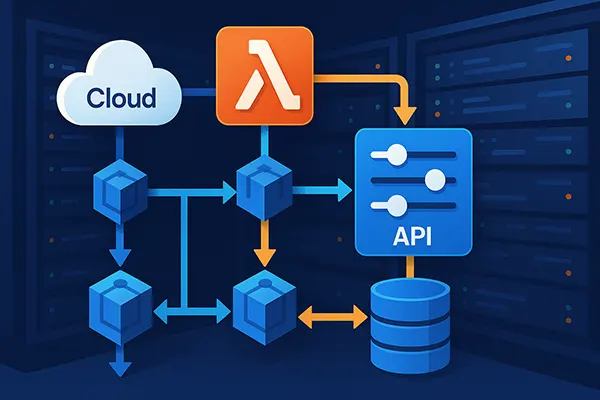Quantum Computing in 2025: New Frontiers and Real-World Applications

Quantum computing has evolved from a theoretical concept into a field that is achieving tangible results and drawing global attention. In 2025, the sector is experiencing a shift from experimental demonstrations to functional, real-world applications across multiple industries. This article examines the latest breakthroughs, their practical uses, and the future potential of quantum technologies.
Recent Breakthroughs in Quantum Computing
In 2025, several companies have achieved significant milestones, including stable quantum processors with more than 1,000 qubits. These advances have improved coherence times and reduced error rates, making quantum systems more reliable and scalable. Such achievements represent a step closer to achieving quantum advantage — the point where quantum machines outperform classical supercomputers in solving practical tasks.
Another major development is the progress in quantum error correction techniques. By introducing innovative logical qubit architectures and using entangled states, researchers have been able to correct errors more efficiently, which has been a key barrier to building fault-tolerant quantum computers. These methods are now moving from laboratory demonstrations to integration in commercial systems.
Moreover, the rise of hybrid quantum-classical computing models has accelerated research. These systems combine the strengths of quantum processors for specific complex calculations with classical systems for broader processing tasks, improving overall performance and enabling new scientific discoveries in fields such as chemistry and materials science.
Implications for the Tech Industry
These breakthroughs are transforming the technology landscape. Quantum-ready infrastructures are being developed to support integration with existing data centres, allowing companies to run quantum workloads alongside traditional computing. This hybrid approach makes the transition smoother for organisations adopting quantum technologies.
Cloud-based quantum computing services are expanding access, allowing researchers and businesses to experiment without building their own hardware. This democratisation of quantum resources is stimulating innovation and fostering collaborations between academia and industry.
At the same time, the demand for specialists in quantum programming and algorithm design has surged, leading to the creation of new educational programmes and certifications aimed at preparing a skilled workforce for the quantum era.

Real-World Applications Emerging in 2025
Quantum computing is no longer confined to theoretical simulations; it is now solving real problems. One of the most promising areas is pharmaceutical research, where quantum algorithms are being used to model complex molecular structures and accelerate drug discovery. This significantly reduces the time and cost of developing new treatments.
Another key application is in logistics and supply chain optimisation. Quantum systems are being deployed to analyse vast datasets and determine optimal routes and inventory strategies, which improves efficiency and reduces operational costs for global companies.
Additionally, the finance sector is exploring quantum methods for risk analysis and portfolio optimisation. These models can process more variables simultaneously than classical systems, allowing institutions to make more accurate predictions and decisions in volatile markets.
Benefits for Businesses
The adoption of quantum technologies offers businesses a competitive advantage by enabling faster problem-solving and improved decision-making. Companies that integrate quantum solutions into their operations can handle complex computations that were previously infeasible.
Early adopters are also positioning themselves as innovation leaders, attracting investment and partnerships by showcasing their technological capabilities. This boosts their reputation and strengthens their market position.
Moreover, access to quantum-powered tools can open new business models, especially in sectors where data complexity is a limiting factor. Organisations that embrace this shift can redefine their strategic approaches and develop unique solutions.
Future Prospects and Challenges
While progress is undeniable, several challenges remain before quantum computing can achieve mainstream adoption. Hardware stability, scalability, and the high costs of development are still obstacles. Researchers are working to design systems that can maintain performance as they grow in size and complexity.
Security is another critical issue. Quantum computing has the potential to break current encryption standards, which has led to a global push towards developing post-quantum cryptography to protect sensitive data against future threats.
Furthermore, ethical considerations and regulatory frameworks must evolve alongside the technology. Policymakers and industry leaders are starting to create guidelines to ensure responsible use, fair access, and transparent development of quantum systems.
The Road Ahead
The coming years will determine how quickly quantum computing becomes part of everyday business operations. Collaboration between private companies, governments, and academic institutions will be crucial in accelerating technological maturity and ensuring broad accessibility.
Investments in education and workforce development will also play a pivotal role, as the industry requires a new generation of specialists with expertise in quantum physics, computer science, and engineering.
If these challenges are addressed, quantum computing could become a foundational technology that reshapes entire industries and drives innovation across the global economy.
Popular topics
-
 Backup Comparison in 2026: ...
Backup Comparison in 2026: ...Backups are one of those things most people only …
-
 High-Performance Networking...
High-Performance Networking...High-performance networking has become a core requirement for modern …
-
 Edge AI and TinyML: How Int...
Edge AI and TinyML: How Int...Edge-level artificial intelligence has become one of the most …
-
 How to Programmatically Bui...
How to Programmatically Bui...Creating a flexible and efficient microservices ecosystem in 2025 …
-
 The Role of Artificial Inte...
The Role of Artificial Inte...Artificial intelligence has become a practical component of gambling …
